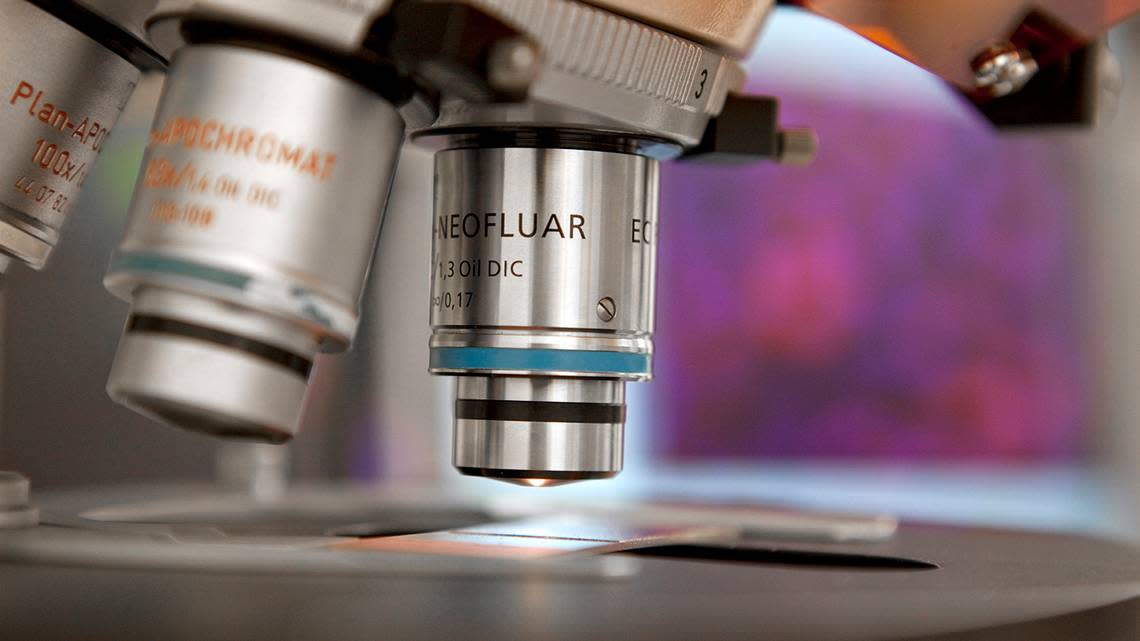Your pills were just recalled? What you can do if there’s danger in medicine or food

You just heard that the eye drops you use have been recalled.
And a consumer warning has been slapped on your favorite cookies.
What’s a consumer to do?
First thing: Take it seriously.
We often take for granted that our food and medicine won’t sicken or kill us. While there’s more chance of getting ill from our own mistakes — like leaving that picnic cole slaw outside too long — manufacturers, retailers and the federal government flag the occasional problems with our food and medicine supplies.
Those problems include mislabeling, unexpected allergen threats and bacteria breaches.
So, what should you do if you learn of a problem or a recall?
Here is some information:
How to check if there’s a recall
Resources: You’ll need to do a little work to keep up with recalls. Here’s some help on where to go:
▪ Go to the Miami Herald’s Recall page for the latest stories.
▪ Subscribe to the weekly Consumer Safety newsletter.
▪ Follow Miami Herald consumer reporter David J. Neal on X and on his story page at MiamiHerald.com. He monitors several federal agencies and store chains for the latest food, merchandise and medicine recalls.
▪ U.S. Food & Drug Administration’ safety alert page.
▪ U.S. Department of Agriculture health alerts page.
▪ U.S. Consumer Product Safety Commission recall page.
▪ Publix recall page.
▪ Walmart recall page.
Risks in food
Bacteria: You don’t want to put yourself at risk of getting sick, so if you see a recall that involves salmonella, listeria or E. coli, don’t fool around. Throw it in the garbage — well wrapped and deep, so Fido or Pussywillow don’t get into it — or return it to the store. Remember , even if a store has pulled an item from the shelves after a recall involving bacteria, it can still be in your fridge or pantry.
Most at risk for the worst effects of salmonella are people over 65, children under 5 and those with damaged immune systems. Most people get fever, vomiting, stomachaches and diarrhea after eating tainted food, symptoms that can run for four to seven days. In addition to the aforementioned groups that get the worst from salmonella, listeria also does its worst to pregnant women.
Foreign substances: Is that blue plastic in my meatball? You don’t want to get to that point. If you see a recall notice involving things that shouldn’t be in your food like glass or toenails or whatever, toss it it or take it back to the store for a refund. It’s not worth the risk to keep it around.
Mislabeling: This could be bigger than you think. When food is mislabeled, it could mean an ingredient might not be listed, such as eggs. And that could be dangerous for people with allergies. If a food has milk, consumers need to know, whether they have allergies or adhere to a vegan diet. If a medicine lists the wrong amount, that could be lethal.
If ingredient mislabeling doesn’t affect you, the product is safe for you to consume. But if someone at home has an allergy, either throw out the product immediately or bring it back to the store for a refund. You can also call the company to clarify the ingredients and safety. If the mislabeling is on a medicine, it’s best to call your doctor or pharmacist, or return it to the store.
Problems with pills and other medicines
Options: If your maintenance drug has been recalled over dosage (too weak or too strong) or labeling, you have some options. If you use the medicine to control a life-threatening medical issue, experts advise that you keep taking it until you and your doctor or pharmacist come up with a new treatment. If a drug causes a problem, after notifying a medical professional, let the FDA know via its MedWatch Adverse Event page or by filling out a form you can get by calling 800-332-1088.

